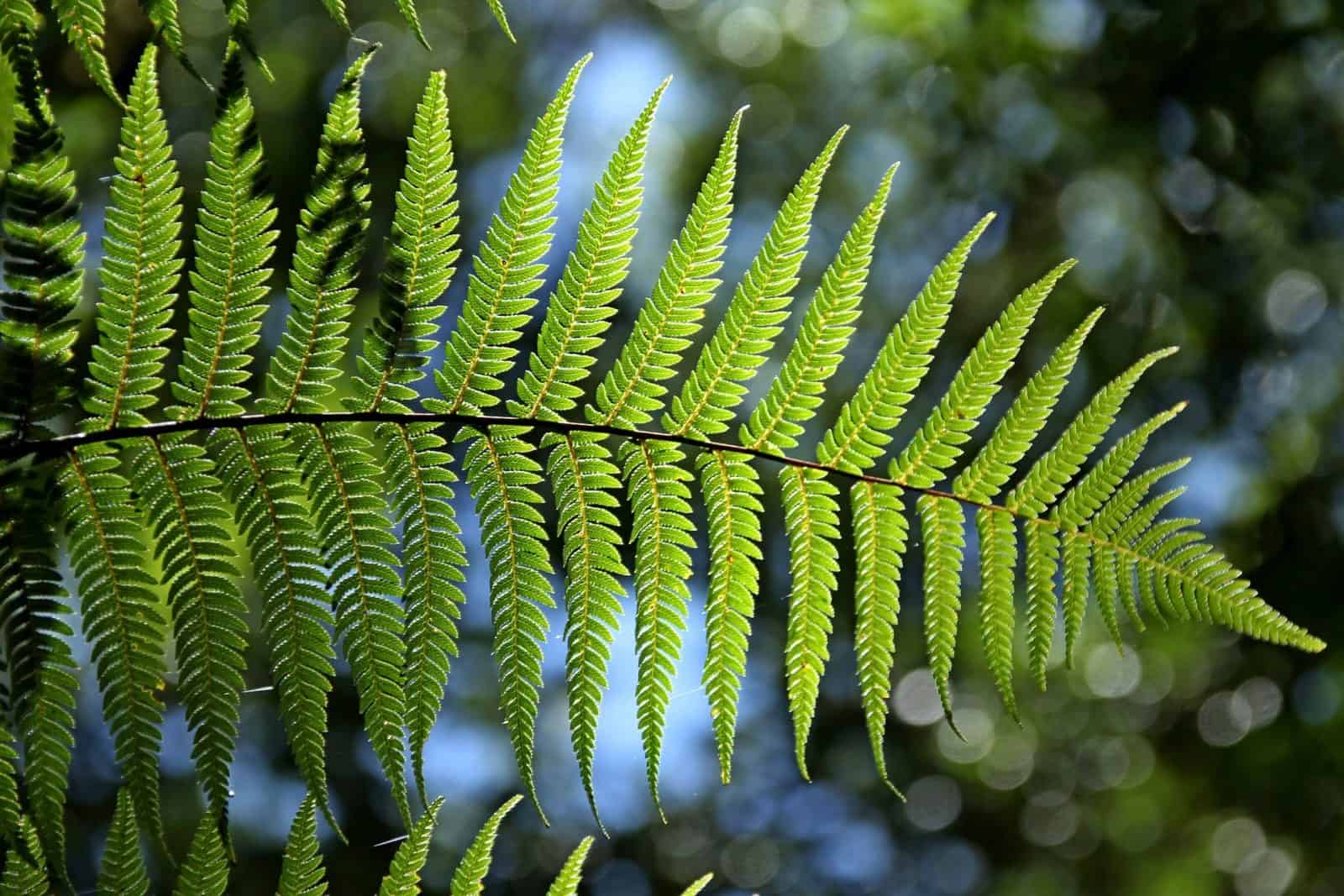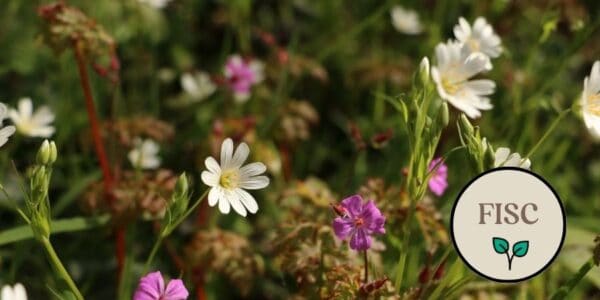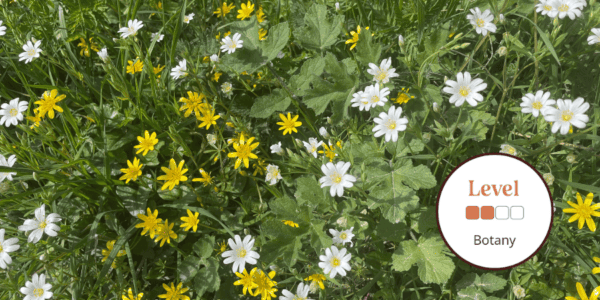This beginner course is designed to provide you with a basic overview of ferns and their ecology. The course will focus on the identification of common ferns.
In the field you will also examine the anatomy, morphology, and taxonomy of ferns. You will learn about the importance of ferns in the environment, plus the benefits and restrictions on collection and cultivation of ferns.
This course will include:
- Anatomy of Lycophytes and Ferns
- Life Cycles of Lycophytes and Ferns
- Field identification of Ferns
- Resources and equipment needed to take your next steps in learning about Lycophytes and Ferns
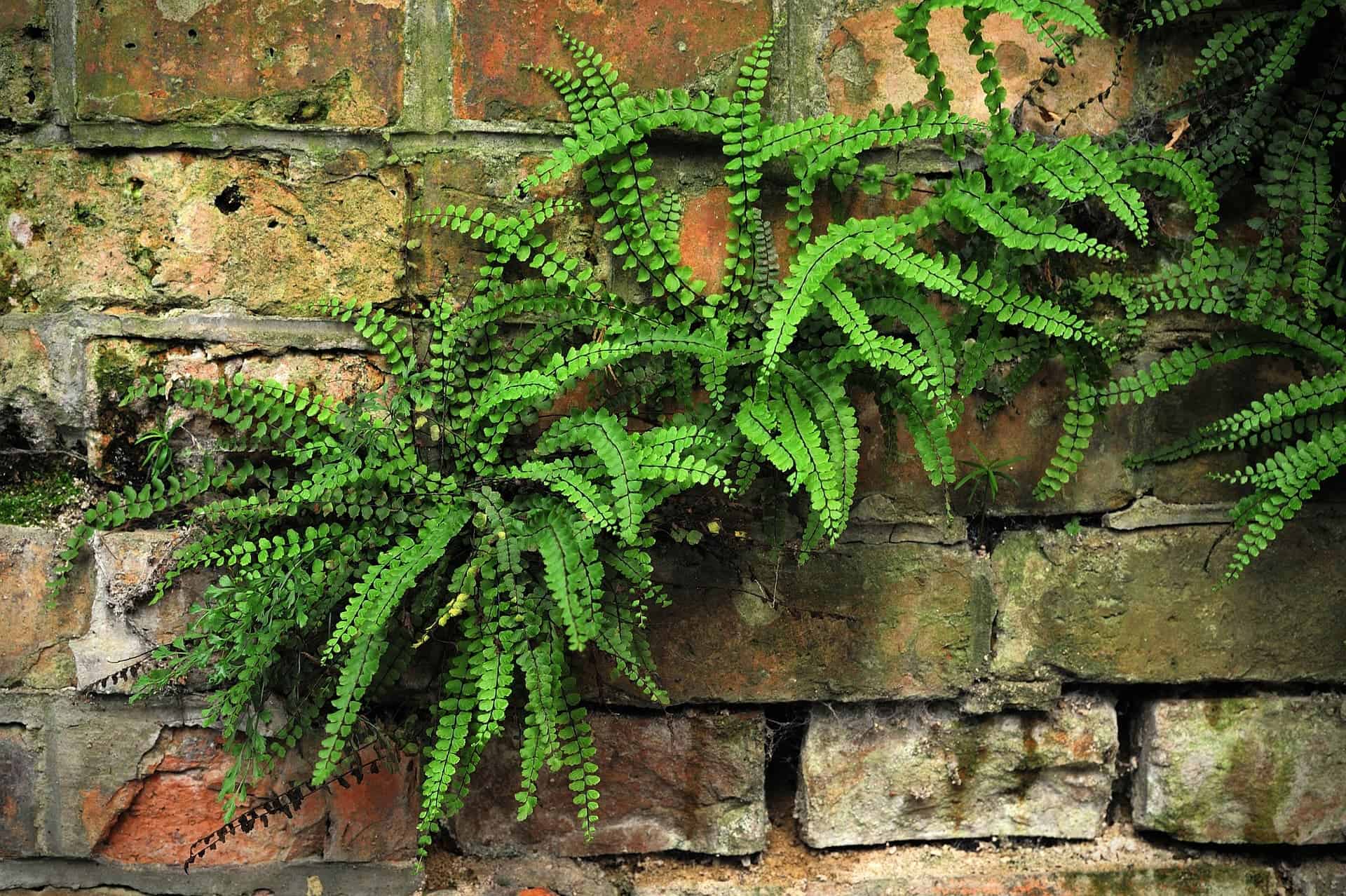
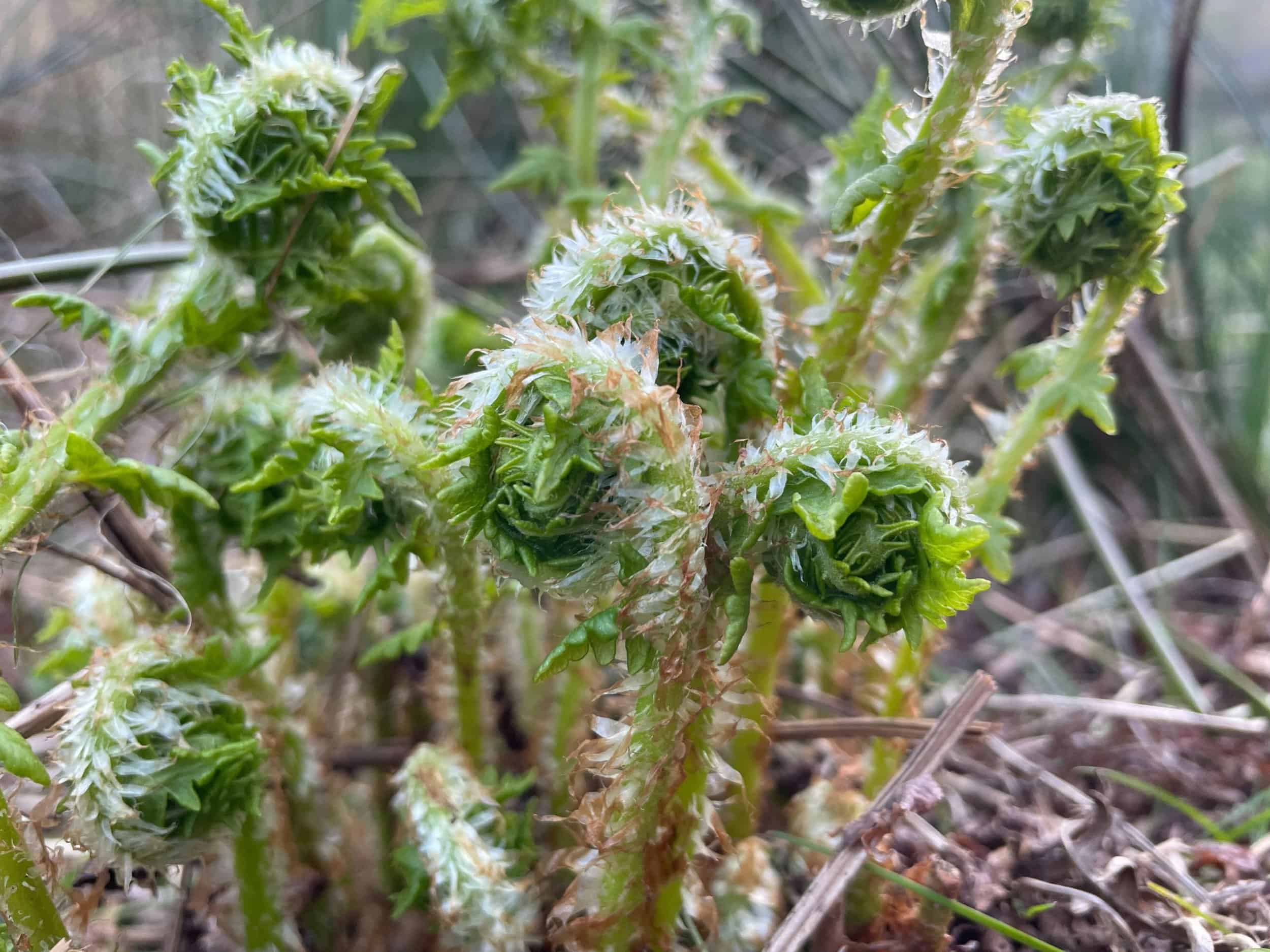
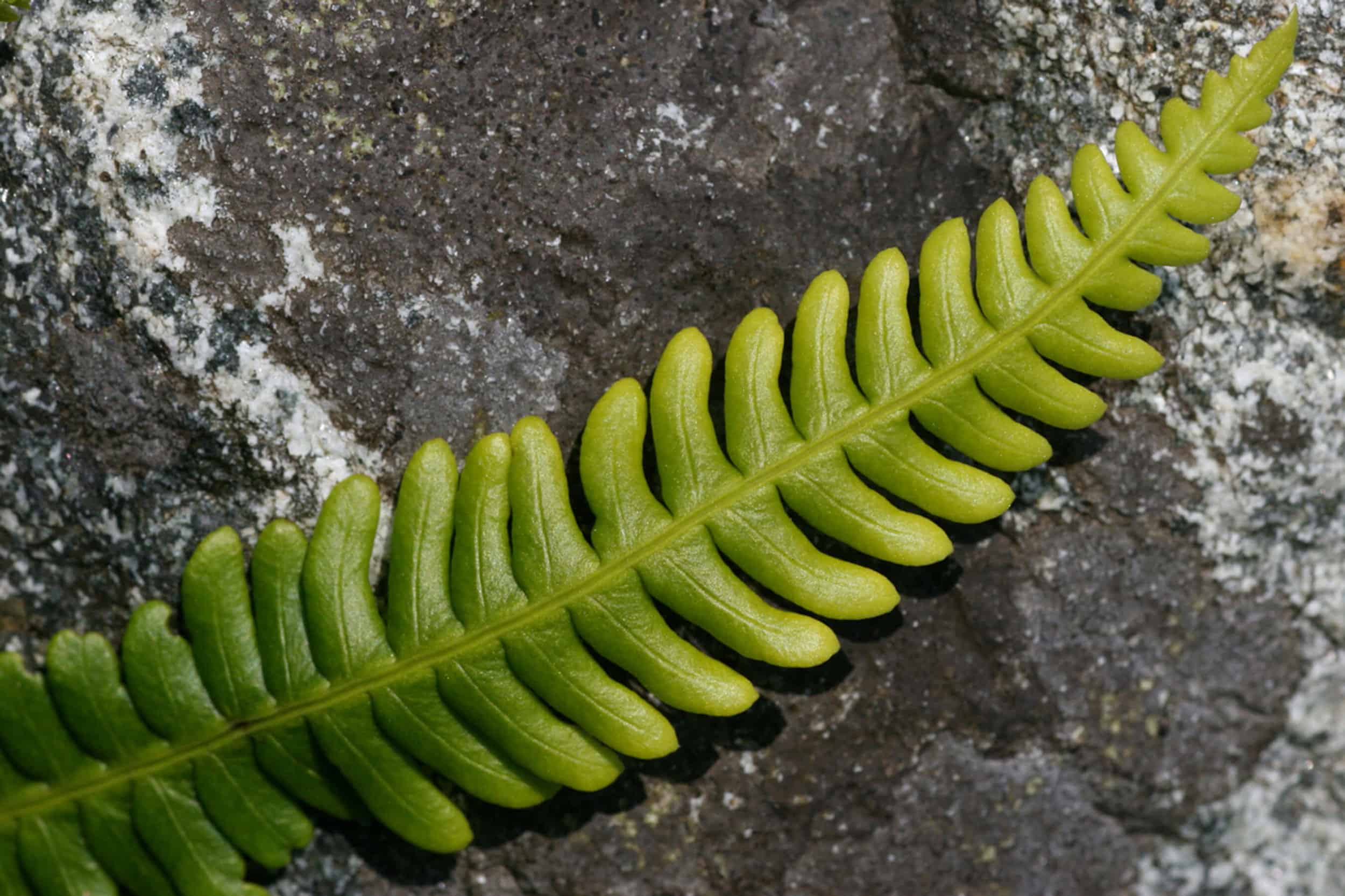
Read More
By the end of the course, you will:
- Be comfortable with what to look for when identifying ferns
- Know how to use a key
- Appreciate the range of ferns and their importance in the environment
Who Should Attend? – Anyone with an interest in our botanical heritage, from amateur through to ecological professional.
Knowledge level – Beginner. Level descriptors can be found on the following web-page: Framework and Course Level Descriptors
Prior knowledge – No existing knowledge or experience is needed for this course, just a willingness to explore and learn.
PLEASE NOTE: There is no accommodation, refreshments, or meal facilities included in the course price. Please check the course dates below for venue accommodation availability. If we are unable to reach viable numbers for this course, we will inform you of the course cancellation 4-5 weeks prior to the course run. We would recommend when purchasing accommodation and/or travel you should take out your own insurance.
Bookings will close if course capacity is reached.
Please email [email protected] if you have any questions.
About the Tutor
David G. Hill
David has had a long interest in all aspects of natural history. After training in Forestry and Soil Science he has worked in Wildlife Photography, IT and Further-Education, but became interested in Biological Recording in 2011. He went on to complete a Master’s Degree in Biological Recording in 2015, with a dissertation on Marsh Clubmoss; developing a passion for ferns and lycophytes. He is currently Honorary General Secretary for the British Pteridological Society, Chair of Cofnod (North Wales Local Record Centre) and a Fellow of the Linnean Society.
Example Timetable
Example Timetable
This timetable is subject to change but should give a clear outline of what to expect.
- Please arrive in time for the course to start promptly at 10:00
- The course will end at 17:00
10:00 - 10:15 - Welcome, outline, orientation, health & safety, equipment (the course will begin in the Library)
10:15 – 11:00 - Introduction to Ferns and Lycophytes
11:00 – 11:15 - Break (refreshments not provided)
11:15 – 11:45 - Fern life cycle
11:45 – 12:30 - Fern anatomy – parts of a frond
12:30 – 13:30 - Lunch (not provided)
13:30 – 15:45 - Practical Identification
15:45 – 16:00 - Break (refreshments not provided)
16:00 – 16:30 - Growing ferns
16:30 – 17:00 - Next steps, Microscope ID, resources and field guides
Please note accommodation, refreshments, and an evening meal are not included in the course price - please check the course dates below for venue accommodation availability.
What's Included
The course has been carefully created by expert tutors and educators to help you continue to build and develop your knowledge and apply it within the field surrounded by like-minded individuals.
The course includes:
- Classroom learning covering the theory of the species
- Field excursions to apply new knowledge
- Expert tuition for which the Field Studies Council is renowned
- Clear objectives and progression
You can rest assured that the absolute best content from an expert in environmental education will be provided. In choosing a Field Studies Council course, you will be joining thousands of people who learn with us each year.
Bursaries and Subsidies
Student Discount
This course is eligible for a student discount. If you are a current student, please use discount code BioStudent20 at checkout for 20% off all Biodiversity courses.
Natural History Bursaries
There are a number of natural history bursaries available to help with the cost of your course. To find out if you and your chosen course are eligible, read more here.
Before You Attend
What to bring:
- Notebook and pencil
- Lunch and refreshments
- Sensible footwear and clothing for being outdoors
- Small bag to carry personal items
Recommended Literature
- The Fern Guide (highly recommended)
- FSC fold out Fern Guide
There will be a member of staff with first aid training and access to a first aid kit on site. If you have special medical or access requirements, please let us know as soon as possible so we can plan the course.
Opportunities to attend this course
This course is not currently available to book. Dates will follow soon.
Sign up to our Email Newsletter
Progress Your Learning
This is a training course from the Field Studies Council, delivered by expert tutors with an approachable learning style. After attending this course, you may like to progress your learning with further relevant courses or branch out into other areas of natural history. The Field Studies Council offers both online and in person courses, so you can choose the learning style that suits you best.
The course gives you the opportunity to immerse yourself in a new subject and acquire novel skills. Our online portal gives you time to study at your own pace and fit the lessons around your own schedule.
If you have any questions about our courses please check our Frequently Asked Questions or email [email protected].
Group Bookings Made Easy
If you have a group of 10 or more individuals wanting to complete one of our courses, our team are available to discuss your options – from discounts to private team courses. Click here to find out more!
You can rest assured that the absolute best content from an expert in environmental education will be at your fingertips. In choosing a Field Studies Council course, you will be joining thousands of people who learn with us each year.

